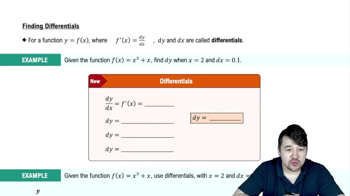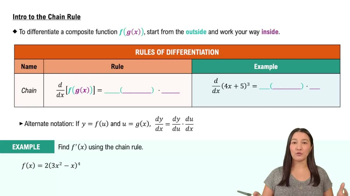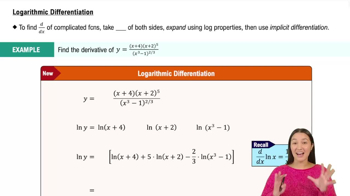Calculate the derivative of the following functions. In some cases, it is useful to use the properties of logarithms to simplify the functions before computing f'(x).
f(x) = In 2x/(x² + 1)³
 Verified step by step guidance
Verified step by step guidance Verified video answer for a similar problem:
Verified video answer for a similar problem:



 4:50m
4:50mMaster Derivatives of General Exponential Functions with a bite sized video explanation from Patrick
Start learning